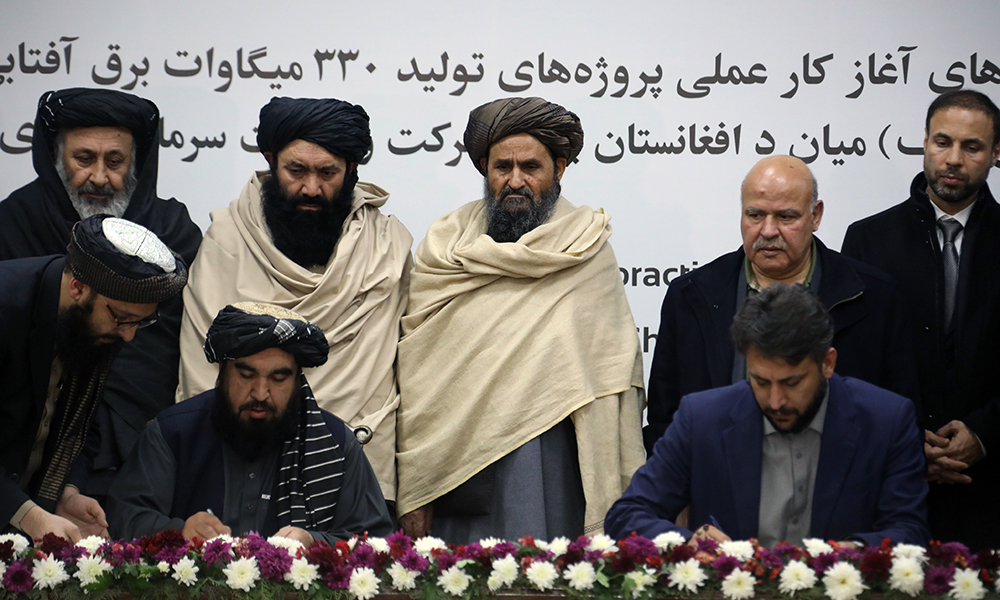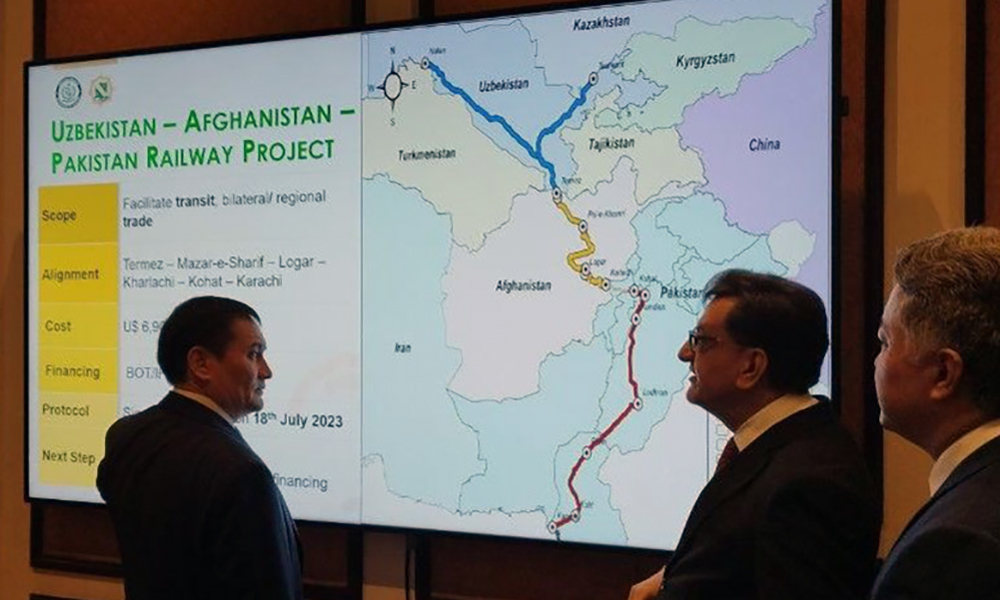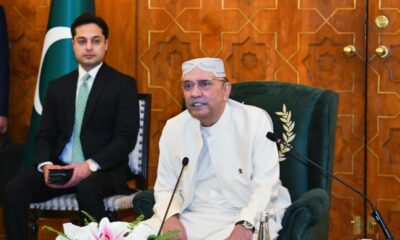Business
Afghan Private Banks Responsible to Respect Islamic Banking System

Officials in Afghanistan Central Bank has urged that private banks are responsible to activate Islamic banking section in Afghanistan.
They have said, “we have drafted a chapter of 46 articles on Islamic banking soon we will send it to Afghanistan parliament for further confirmation and approval.”
During a session which held by the cooperation of Afghanistan central Bank and Harakt-i- Roze NGO in Kabul, in the following session Islamic Banking experts and the Afghanistan central Bank officials have exchanged their points view on Islamic banking sectors to be activated in all private banks.
At the end of their session, they have mentioned that the article 23 in the Islamic banking law indicates that Islamic banking sections should be activated within the Private Banks across the country.
Acting Head of the Central Bank Khan Afzal Hada wal said,” we hope to draw more investments by approving Islamic Banking law in the country,he also warned those banks don’t activate Islamic banking sections within their banks according to the law it will be closed.”
He also said,” the following law to be approved and confirmed and signed in coming September 2015, he urged that most of the people in Afghanistan don’t use Banks because of its profits which is not lawful.”
General head of the Private Banking Union Ahmad Sear Quriashi said,” this is a positive step towards Private banking we welcome it,it seems that most of the Afghans are interested into Islamic banking system.”
He also mentioned that there 15 private banks are working across the country, among those 8 of them respecting Islamic banking system where 2 $ billion is being circulated in the Islamic banking section.
Reported by Nimatullah Ahmadi

Business
Afghanistan signs 845MW Power deal with Azizi energy; Baradar meets company Chief to advance investment plans

Contracts for the commencement of practical work on five major power generation projects with a total capacity of 845 megawatts were signed on Wednesday between Da Afghanistan Breshna Sherkat (DABS) and Azizi Energy.
The signing ceremony was held at the Government Media and Information Center in the presence of Deputy Prime Minister for Economic Affairs Mullah Abdul Ghani Baradar.
Under the agreements, Azizi Energy will invest approximately $463 million in the projects, which include 100 megawatts of solar power in the Naghlu area of Kabul province, 100 megawatts of solar power in Barik Ab area of Parwan province, and 130 megawatts of solar power in Ghazni province.
In addition, the company will construct 165 megawatts of coal-fired power generation in Takhar province and 350 megawatts in Baghlan province.
Officials said the solar projects are expected to be completed within two years, while the coal-fired plants will be finalized within three years. The projects form part of a broader 10,000-megawatt energy investment plan aimed at strengthening domestic electricity production and reducing reliance on imports.
Following the signing ceremony, Deputy PM Baradar met with Azizi Group’s Chief Executive Officer Mirwais Azizi and his technical team at his office.
Baradar welcomed the launch of practical work on the five projects, describing them as significant steps toward job creation and economic growth in the country.
Azizi expressed appreciation for the cooperation provided by the Deputy Prime Minister’s office and relevant institutions, stating that the company had faced no major obstacles in advancing its plans. He said the Islamic Emirate has demonstrated a strong commitment to national development, which paved the way for the implementation of the projects.
Azizi further announced that an additional 15 to 20 power generation projects, with a combined capacity of up to 5,000 megawatts, are expected to be launched by the end of the current year.
He also noted that work on the TAPI project is progressing steadily on Afghan soil. Once gas reaches Herat province, Azizi Group plans to coordinate with the Ministry of Mines and Petroleum to develop major gas distribution networks and establish a 3,000-megawatt gas-fired power plant.
Azizi called for close cooperation with relevant authorities in the exploration, extraction, and utilization of natural gas and coal resources for electricity production.
Deputy PM Baradar and officials from the concerned institutions assured full cooperation and joint coordination in advancing the energy sector projects.
The agreements mark one of the latest investments in Afghanistan’s power infrastructure, signaling renewed efforts to boost domestic energy production and stimulate economic development.
Business
Uzbekistan approves feasibility study agreement for Trans-Afghan Railway
The agreement builds on a tripartite document signed on July 17, 2025, which outlined cooperation on preparing a feasibility study for the Termez–Kharlachi railway corridor.

Uzbekistan has ratified an international agreement to prepare a feasibility study for the Naybabad–Kharlachi section of the Trans-Afghan Railway, formalizing its participation in the project.
President Shavkat Mirziyoyev signed a decree on February 4 approving the agreement.
The framework agreement involves the transport ministries of Uzbekistan, Afghanistan and Pakistan and provides for joint work on a feasibility study for the proposed railway line between Naybabad and Kharlachi. The section forms part of the wider Trans-Afghan Railway project aimed at strengthening transport links between Central and South Asia.
Under the decree, Uzbekistan’s Ministry of Transport has been designated as the competent authority responsible for implementing the agreement. The Ministry of Foreign Affairs has been tasked with notifying Kabul and Islamabad that Uzbekistan has completed the internal procedures required for the agreement to enter into force.
The agreement builds on a tripartite document signed on July 17, 2025, which outlined cooperation on preparing a feasibility study for the Termez–Kharlachi railway corridor.
The planned route is expected to run through Termez, Naybabad, Maidanshahr, Logar and Kharlachi, providing a transit corridor through Afghanistan.
The feasibility study will be commissioned by the Tripartite Project Office for the Development Strategy of International Transport Corridors under Uzbekistan Railways.
Established in Tashkent in May 2023, the office also operates branches in Kabul and Islamabad to coordinate the project.
First proposed in 2018, the Trans-Afghan Railway was initially projected to carry up to 20 million tons of cargo annually at a cost of about $5 billion. Cost estimates have since been revised.
In July 2022, Uzbekistan Railways cited an estimate of $4.6 billion with a construction period of up to five years, while Pakistan’s Ministry of Railways put the cost at $8.2 billion in December 2024.
More recent assessments have placed the overall cost at around $7 billion, with a public-private partnership under a Build-Operate-Transfer model among the options under consideration.
Business
Afghanistan seeks expanded ties with Russia in energy, mining and infrastructure
TASS reported that Kabul is also prepared to cooperate with Moscow in the extraction of mineral resources.

Afghanistan has expressed strong interest in broadening trade and economic cooperation with Russia, with a particular focus on energy, mining and infrastructure projects, according to Russia’s TASS news agency.
In an interview with TASS, Afghanistan’s Ambassador to Moscow, Gul Hassan, said Kabul is keen to import oil and gas from Russia as part of efforts to deepen bilateral economic ties.
He noted that trade relations between the two countries are progressing and that, if key obstacles—especially banking restrictions—are addressed, Afghanistan could also import medicines, industrial goods, grain, vegetable oils and other commodities from Russia.
In return, the ambassador said Afghanistan is ready to export fresh and dried fruits, vegetables, medicinal plants, carpets and mineral resources to the Russian market, adding that expanding export-import operations could significantly increase bilateral trade volumes.
He also revealed plans to open an exhibition of Afghan products in Moscow, which he said would help boost trade turnover.
TASS reported that Kabul is also prepared to cooperate with Moscow in the extraction of mineral resources.
Hassan described the economy as a central pillar of Afghanistan’s foreign policy, emphasizing the government’s goal of positioning the country as a key link in regional economic integration and attracting foreign investment.
He noted that Russian companies have long shown interest in Afghanistan’s industrial, mining and infrastructure sectors.
The ambassador further told TASS that Russian firms are already in talks with relevant Afghan authorities on the construction of small hydroelectric power plants.
Representatives of several Russian companies have reportedly visited Afghanistan and held meetings with officials and technical experts.
According to Hassan, practical steps toward cooperation in the energy and power generation sectors are expected in the near future, pointing to a potential new phase in Afghan-Russian economic relations.
-

 Sport5 days ago
Sport5 days agoChampions League Elite action continues as qualification race tightens
-

 International Sports4 days ago
International Sports4 days agoIPL 2026: Franchise sales gather pace as global investors circle teams
-

 Sport5 days ago
Sport5 days agoEarly medal leaders emerge as Winter Olympics continue in Italy
-

 Latest News5 days ago
Latest News5 days agoTerrorist activities observed along Afghanistan borders, says Lavrov
-

 World5 days ago
World5 days agoHong Kong tycoon Jimmy Lai sentenced to 20 years in jail in national security trial
-

 Latest News5 days ago
Latest News5 days agoPakistan president claims situation in Afghanistan is ‘similar to or worse than pre-9/11’’
-

 Sport2 days ago
Sport2 days agoAfghanistan’s semi-final hopes hang in the balance after two T20 World Cup defeats
-

 Business4 days ago
Business4 days agoUzbekistan approves feasibility study agreement for Trans-Afghan Railway

















